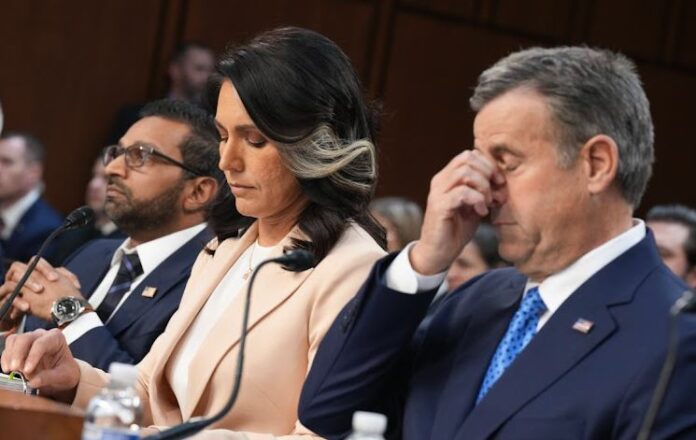Washington, D.C. – Senior U.S. officials are sounding the alarm over two text messages sent by National Security Adviser Mike Waltz and CIA Director John Ratcliffe in a Signal group chat, warning that the messages may have inflicted lasting damage on America’s ability to gather intelligence on the Iran-backed Houthi group in Yemen. The revelations, reported by current and former officials to CNN, come amid scrutiny of a broader leak involving battle plans shared in the same chat, which included Atlantic editor Jeffrey Goldberg.
The controversy centers on a discussion among top Trump administration officials about a March 2025 military strike on Houthi targets. While Defense Secretary Pete Hegseth’s detailed messages about strike timing and weaponry have drawn significant attention for potentially endangering U.S. troops, sources say the texts from Waltz and Ratcliffe contained equally sensitive insights into U.S. intelligence operations.
In one message, Ratcliffe informed Cabinet members debating a strike delay that the CIA was mobilizing assets to collect intelligence on the Houthis, noting that a postponement could help “identify better starting points for coverage on Houthi leadership.” Experts say this not only confirmed U.S. surveillance efforts—damaging in itself—but also hinted at methods, such as overhead surveillance, potentially tipping off the Houthis to alter their behavior.
Waltz, in a subsequent text, provided a detailed after-action report, stating the military had “positive ID” of a senior Houthi leader “walking into his girlfriend’s building.” Officials warn this specificity could expose U.S. targets and surveillance techniques, giving the Houthis a roadmap to evade detection. “They’ve always been hard to track,” a former intelligence official told CNN. “Now you’ve just put a spotlight on them.”
Trump administration officials, including Waltz and Ratcliffe, have insisted no classified information was shared. Ratcliffe, testifying before the Senate Intelligence Committee on March 25, defended his “starting points” remark as innocuous. However, current and former officials sharply disagree, arguing that both messages revealed “sources and methods”—information typically withheld to prevent adversaries from deducing U.S. capabilities. “It’s not a technical blueprint, but it’s enough for an educated guess,” one source said.
The use of Signal, an encrypted but unclassified app, for such discussions has stunned CIA insiders. “He was talking like he was in a SCIF,” a former official said, referring to secure classified facilities. Another called Ratcliffe’s actions “irresponsible,” adding, “He’s the director—he should know better.” A CIA spokesperson countered, “Director Ratcliffe takes safeguarding intelligence seriously. Nothing he shared posed any risk to sources or methods.”
Signal Use Sparks Internal Backlash
The incident has prompted a quiet backlash within the CIA, where career officials issued a “reminder” to Ratcliffe’s staff on March 26 about appropriate Signal use. While the app is approved for logistical coordination—pre-loaded on officials’ devices and widely used across government—discussing operational details is strictly forbidden. “It’s secure for commercial apps, but not for classified or sensitive data,” a U.S. official explained. Recent reports of Russian-linked hackers targeting Signal accounts in Ukraine have further underscored its vulnerabilities.
Despite the uproar, no formal damage assessment has been ordered by the CIA or Defense Department, with the latter avoiding protocol changes to sidestep admitting fault, per a senior military official. The National Security Council is reviewing how Goldberg was added to the chat, with Waltz accepting blame for creating the group but deflecting criticism with muddled explanations on Fox News.
President Donald Trump has called Signal “defective,” but no policy overhaul is planned. Administration officials continue to downplay the leak’s severity amid political fallout, though Ratcliffe conceded in testimony that “pre-decisional strike deliberation” belongs in classified channels—a rare admission echoing expert concerns.
As the Houthis potentially adapt to exposed U.S. tactics, the episode raises urgent questions about security practices at the highest levels of government, with long-term intelligence consequences hanging in the balance.



